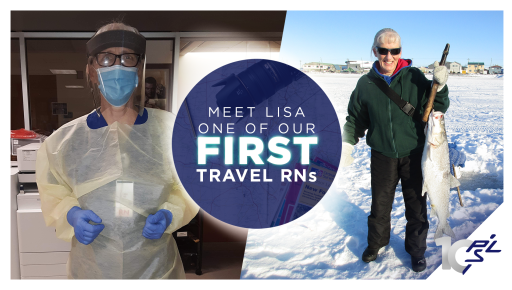Nursing is an industry that is as diverse as it is rewarding. The demand for nurses is extremely high, which means you will also be at an advantage when it comes to finding a job quickly.
By diversity, we mean you can take a wide variety of routes when it comes to progressing your career in nursing. If you are considering your options in terms of nursing specialization, we’ve got you covered. Read on to discover the wide range of nursing specialties, the requirements, and the salary ranges, so you can be fully informed as you prepare to follow your dreams by working as a nursing professional.
Orthopedic Nurse
Orthopedic nurses help patients who have recently suffered an injury or undergone surgery and are recovering. Their primary aim is to help the patients in their care get back to living their life normally as quickly as possible.
As an orthopedic nurse, you may find yourself providing care to patients by fitting dressings, splints, and casts, so you can think of this as a very hands-on role. Your patients are going to look to you for advice and reassurance, so it is vital that you be someone who can remain confident and positive at all times. You will also need to complete documentation and paperwork relating to the patients’ recovery.
To specialize in orthopedic nursing, you need to obtain an Associate’s Degree in Nursing (AND) or Bachelor of Science in Nursing (BSN) before passing the NCLEX-RN exam. Most employers want some work experience on your resume as an RN, along with 1,000 hours’ experience in Orthopedics.
The average salary of an orthopedic nurse is $96,259 per year, depending on the facility and state in which you work.
Psychiatric Nurse
A psychiatric nurse is someone who takes on the role of providing support for patients that are dealing with psychiatric disorders, meaning that this can be a rewarding yet demanding healthcare role.
While you won’t be working with patients on a daily basis like other nurse specialty roles, building relationships with people is still critical. This is because you need to develop trust between yourself and the patients in your care so you can gain insight into what they are thinking, and feeling, and the pain they are enduring. This will give you the ability to identify any triggers so you can intervene before they manifest and cause turmoil in patients’ lives.
You can work in a variety of settings as a psychiatric nurse; not only in psychiatric wards in hospitals but also in community centers and prisons, just to give two examples.
To specialize in psychiatry as a nurse, you need an Associate’s Degree in Nursing (ADN) or Bachelor in Nursing before passing the NCLEX-RN exam. No previous work experience is needed for most employers, so this is a good specialty if you want to hit the ground running right away immediately after obtaining your nursing license.
The average base salary for a psychiatric nurse in the United States is $105,564.
Critical Care Nurse
To specialize as a critical care nurse, most employers require you to have extensive experience in the industry. This means you won’t be able to go down this route early on in your career; you will need to gather experience first.
While working as a critical care nurse, you’ll find yourself developing innovative approaches to caring for patients, performing tests, and completing comprehensive assessments. You’ll also need to be confident when performing interventions that can be invasive, such as the insertion of arterial lines. Throughout every shift, you will work alongside others that are involved in the care of the patient, such as intensive care doctors and surgeons.
To qualify as a critical care nurse, you need to be registered as an RN, which implies obtaining your Associate’s Degree in Nursing (ADN) or Bachelor of Science in Nursing (BSN) before passing the NCLEX-RN exam to obtain your license.
Two years of specialized training in clinical patient care will then follow to ensure you have the necessary knowledge to make prompt, critical decisions in fast-paced situations. Patients in your care are likely to be battling conditions that are life-threatening, and they need continual monitoring and also specialist treatments.
The average salary for a critical care nurse is $79,800 with some critical care specialists making as much as $92,400.
Pediatric Nurse
Also known as a child’s nurse, a pediatric nurse is someone who works with anyone who is under the age of 18-years-old. Pediatric nursing is incredibly flexible when compared to other specialties and offers immense employment opportunities, as you can easily move into many other specialties if you wish to do so.
A pediatric nurse is typically responsible for evaluating children to ensure they get the proper level of care. As a pediatric nurse, your days will be spent evaluating patient conditions, administering medications, and recording important data, such as temperature and pulse.
Since every child is different, every decision you make must be weighed against a range of factors, including family circumstances, medical history, and development. This means you are likely to face some challenging and tricky situations if you choose this nursing specialty. One of the key elements of becoming a pediatric nurse is communication, not only with other professionals working alongside you but also with parents, as they must be updated continually on their child’s condition.
Pediatric patients can work in a variety of different departments within a medical facility, including oncology, pediatric intensive care unit (PICU), or rehabilitation, just to name a few.
To qualify as a pediatric nurse, you need to obtain an Associate’s Degree in Nursing (ADN) or Bachelor of Science in Nursing (BSN) before passing the NCLEX-RN exam to obtain your nursing license.
Many employers prefer that you have some work experience as a nurse working in child or family-focused care.
The average annual salary for a pediatric nurse is $74,800.
Neonatal Nurse
If you want to care for newborns, you may want to think about specializing as a neonatal nurse. When a baby is born prematurely or otherwise suffering from a particular condition, that baby will spend its first few weeks or even months in a special care baby unit or a neonatal unit, whereby the little one will be cared for by a neonatal nurse.
This nurse specialty role incorporates a number of different responsibilities, from recording the progress of patient care to preparing medications.
One of the key roles of a neonatal nurse is to support the parents of the newborns in your care. For parents that have a baby in the hospital, this can be a very worrying and stressful time, so a neonatal nurse needs to be able to give them the reassurance they require. That’s where you come in.
To qualify as a neonatal nurse, you need to obtain an Associate’s Degree in Nursing (ADN) or Bachelor of Science in Nursing (BSN), though many employers prefer you to have a BSN as opposed to an ADN for NICU positions.
Once you have your nursing license, you’ll need to gain experience in neonatal care, which requires a minimum of two years of experience working with neonatal patients. This might include general pediatrics, maternal child nursing, or labor and delivery, to give some examples.
The average salary of a neonatal nurse is $65,950.
Certified Midwife Nurse
Midwifery is one of the most fulfilling careers in nursing, and it is ideal for those with an empathetic and caring nature. Certified midwife nurses are responsible for caring for both babies and mothers during labor and pregnancy, as well as during the initial stages of the postnatal period. Not only do they monitor wellbeing and health, but they provide guidance and support on tackling life with a newborn. For a lot of expectant parents, their midwives are often their first point of contact when it comes to asking the all-important questions about looking after their newborn.
To qualify as a certified nurse-midwife, you need to earn a Bachelor of Science in Nursing Degree (BSN) before passing the NCLEX-RN exam. You will then need to gain experience working as an RN, usually two years of experience for most employers.
Following that, you will be required to earn a Master of Science in Nursing Degree (MSN) or Doctor of Nursing Practice Degree (DNP) with a Midwifery focus before passing the National Certified Nurse Midwife (CNM) exam.
The average salary for a certified nurse-midwife in the U.S. is $115,633.
Certified Registered Nurse Anesthetist (CNRA)
CNRAs are some of the highest-paid advanced practice nurse specialists in the field. You would be perfect for this role if you desire more autonomy while working with patients in intensive care units, operating rooms, and surgical facilities.
As a certified registered nurse anesthetist, you would be responsible for administering anesthesia and other medications to patients prior to surgery. You would also monitor patients who are receiving anesthesia during surgery and afterward, during their recovery.
To qualify as a CRNA, you need a minimum of a Doctor of Nursing Practice Degree (DNP) with a focus on anesthesia followed by extensive clinical training. You will then need to pass a certification exam approved by the National Boards of Certification and Recertification of Nurse Anesthetists (NBCRNA).
The average salary of a certified nurse anesthetist in the United States is $199,060 with some CRNAs making as much as $215,249 or more annually.
Oncology Nurse Practitioner
An oncology nurse practitioner (otherwise referred to as an oncology NP) works closely with physicians, surgeons, cancer patients, and patients' families.
As an oncology NP, you would play a key role in the assessment, education, and coordination of patient care. You would also provide support to patients and their caregivers both during cancer treatment and beyond.
Since cancer treatment is constantly evolving, the role of oncology NP will always shift to accommodate these changes, but the role will always involve patient-centered care.
To qualify as an oncology nurse practitioner, you must first become an RN by obtaining your Bachelor of Science in Nursing Degree (BSN). You would then require two years of working experience in bedside oncology. You then need to obtain a Nursing Practitioner degree. Overall, it takes around nine years to qualify as an oncology NP.
The average U.S. salary for an oncology nurse practitioner is $117, 801 with some nurses making as much as $122,101 annually.
Family Nurse Practitioner
Like nurse anesthetists, family nurse practitioners operate with more autonomy than other nurse specialists. As an FNP, you would provide patients and their families with care throughout their lifetimes. This role can be rewarding for those who enjoy developing long-term relationships with the patients in their care over the long term.
The care is focused on the family, which means you could have younger patients, elderly patients, and all ages in-between. In addition to treating illnesses and injuries, you would also aid with teaching patients and families about healthy lifestyle habits and disease prevention. Your day-to-day tasks would include physical examinations, diagnostic tests, and the prescribing of important medicines.
To qualify as a family nurse practitioner, you would need to earn your Bachelor of Science in Nursing Degree (BSN) before passing the NCLEX-RN exam to obtain your license.
Most employers will then require you to gain clinical experience working as an RN (usually two to three years). Following that, you'll need to obtain your Master's Degree in Nursing (MDN) or Doctor of Nursing Practice (DNP) through an accredited Family Nurse Practitioner program.
The average U.S. salary for a Family Nurse Practitioner is $115,301.
As you can see, there are a number of different nursing specializations for those who want to further their career in the nursing field. We hope that this has helped you to see that there are so many varied roles you can pursue if you are a nurse currently or thinking of becoming one.
If you are interested in a career in healthcare, you’re certain to find something that is suitable for you. Learn more by applying with Prolink. We want to get to know you and your career goals, so we can help you find the nursing job of a lifetime in the nursing specialization of your choice.








